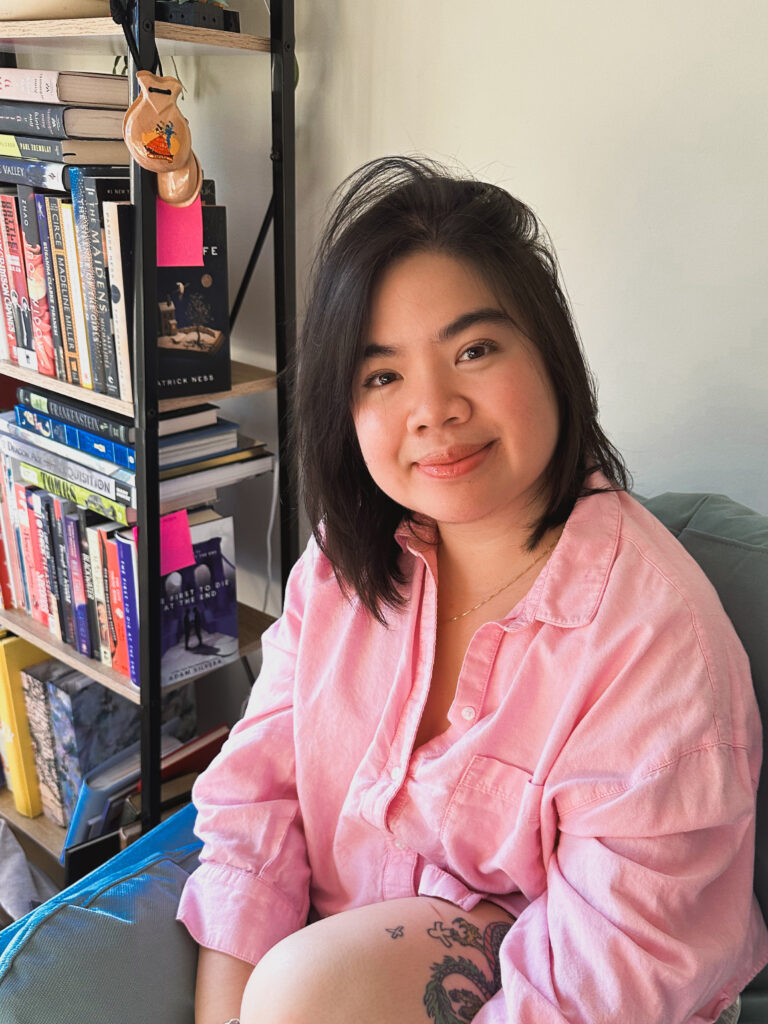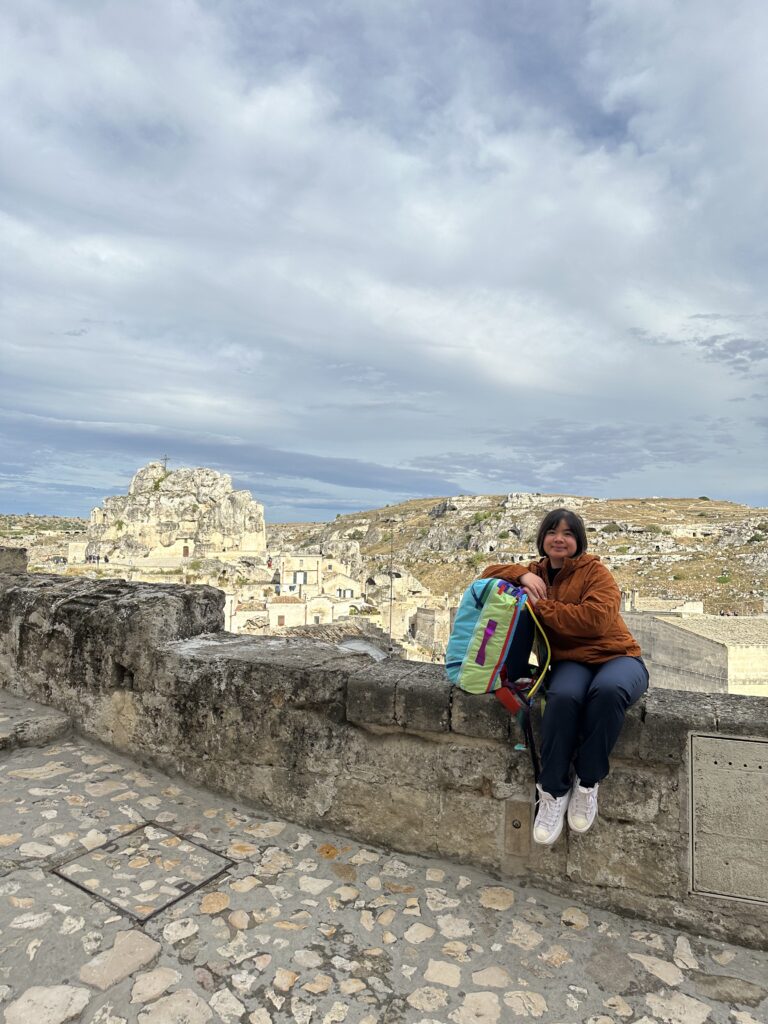Nichie E. is a poet whose work captures the complexities of human emotion, mental health, and the quiet moments that often go unnoticed. Her poetry collection People Watching is a raw, honest reflection of her journey with anxiety, depression, and the beauty found in life’s fleeting moments. In this interview, Nichie opens up about how writing became her lifeline—a way to process emotions too big to contain. She encourages others to embrace their experiences, find strength in vulnerability, and keep moving forward, even when the world feels overwhelming. Through her words, she reminds us all that it’s okay to just be.
1. What inspired you to create your poetry collection, People Watching, and how does it reflect your personal experiences?
Well, I hit thirty, and suddenly, everything was a race and all the other runners were zipping past me. I’d been writing poetry for a while, and I’d realized I had accumulated all these pieces of when I didn’t have the right words to describe the moment I was in and the feelings I had. Putting them together felt right.

2. Can you share more about your journey with anxiety and depression, and how these experiences influenced your writing?
It was September 2020 when I was officially given a diagnosis by a doctor. I was crying daily. The anxiety stress made my hair fall out. Sometimes, I would be sitting at my desk, and I would have heart palpitations and suddenly it felt like the world was going to end. I was having anxiety attacks alone in my room, and nothing felt right or real. The world was so grey.
I was prescribed an SSRI and three months into taking it, I realized the heart palpitations had stopped. I started to see colours again. In therapy, I learnt to try to catch a feeling, and to sit with it, and I feel like sitting with it and writing about it are pretty much the same thing, and often, I am embarrassed to simply say, “I’m sad.” It’s easier to express that in metaphors where sometimes, I feel like if I write a line clever enough, I will have earned the right to be sad.
I feel like this mental health train ride I’ve been on also influences my poetry style a lot. I tend to write a lot of run-on sentences, and half-thoughts. I don’t like endings. I want things to go on. I need things to go on, because I know if you just keep going, the heart palpitations eventually go away.
3. How did you approach writing about the quiet moments in life, and what do you hope readers take away from your poetry?
I will be honest – “quiet” moments terrify me. When it’s quiet, that’s when my thoughts are loudest in my head, fighting for my attention. Writing about the quiet moments is an exercise in awareness, and being present, and I approached it knowing that the best thing for me to put words to paper is to let go.
To me, the worst thing about feeling something is not knowing how to describe it. Something I’m hoping readers take away, ultimately, is that feeling of, “Ah – I get it, those are the words I had wanted to say, too. I just didn’t know how to say it.”
4. What challenges have you faced in maintaining a balance between quantity and quality in your work?
When I first put the collection together, I was worried it was going to be too short to mean anything. I went back and forth thinking if I needed to make some poems longer, or if I needed to write more, but each round of editing left me feeling like each poem was exactly the length it needed to be. I didn’t want to pad out what I felt nor did I want to explain it either. Of course, I needed to hit a minimum for a chapbook, but I wasn’t too worried about getting there as long as I got what I wanted to say across. It may be short, but now People Watching is a moment for my reader, too. One that they can catch and sit with a while if they need to.
5. How has writing poetry helped you cope with and understand your mental health struggles?
Writing poetry helps me understand the muchness in me. It’s funny because there’s this impression that poetry can be difficult to understand because there are layers and hidden meanings and things like that, but when I write a poem, I feel like I’m breaking down a big feeling into something I can digest.
6. Can you describe a moment when you felt particularly connected to your work or when it had a significant impact on you?
The first poem in my collection was actually one of the last poems I wrote. It’s called, “my dog may not live past my thirties”. Writing that was when it finally all came together – looking at my pets, my loved ones, and myself, and thinking about how all so fleeting life is, made me realize that there was no time for doubts of whether this would be good enough. I’m here, and I wrote a thing.
7. What strategies do you use to manage your mental health while working on your creative projects?
Learning to step away from something, and reaching out for help. I’m privileged enough to be able to have a support system that provides me the space to say, “Please help me with this.” It’s actually kind of amazing what reaching out can do for your confidence. I work as a Software Developer and UI/UX Designer, so I actually spend a lot of time asking questions and owning up to things I don’t know how to do, and somehow it’s made me more confident in the things I can do well.
Self-compassion and self-awareness are so key to having confidence in your work, and it helps so much with looking at something and being able to say, “That’s not for me.” or “I don’t need that right now.”
8. How do you stay motivated and inspired during difficult times, both personally and professionally?
I like to think of my dog who is happy that we can just sit outside. I also really playing a comfort game when I’m feeling extra demotivated. I like to cook. I like to lay on my couch and vegetate for a bit. I try to figure out if I’ve really good a bit more push in me, or if I’m running out of steam because I just need a rest.
Sorry it’s not the most exciting answer

9. What advice would you give to other writers or creatives who are struggling with mental health issues?
Take care of your physical body! Eat good food. Get a shower body lotion. Go for walks. There aren’t many feelings that feel as good as sitting down to write after having dessert and freshly washed hair. Sitting in your feelings can be so draining, so sleep enough, but set an alarm. Find someone who will help bring out the voice inside you that’s kind to yourself. Balance good things with neutral things, so that the neutral things become good things and the bad things become neutral things, and the neutral things become easier to let go.
I used to subscribe to the idea that you should write out your feelings, and do something creative to let all the feelings out but I realized that that process is so personal and sometimes it doesn’t work for everyone. Instead, I would suggest focusing on giving yourself an environment where you feel the most able, grateful, and safe.
10. How do you deal with criticism or feedback about your work, and what has been the most valuable lesson you’ve learned from it?
The most valuable lesson I have learnt from getting any sort of criticism is that you should never be attached to anything you produce. My worth is not tied to my output, and sometimes that can be difficult to remember. There are times when I create something that may not be my best, but as long as I’m learning, I will always have the opportunity to create something positive.
11. How do you envision the future of your writing career, and what goals do you have for your creative projects?
I like to envision my writing career to be a very casual slope up, possibly forming connections with people along the way, like going on a simple walk along a paved trail with a friend. If by the end of this trail, I have only made one friend, I will have had a very successful career.
I’ve actually challenged myself to work on something longer this time, so please wish me luck!
12. How can other women use their own experiences and challenges to fuel their creative work and personal growth?
I think something I’ve learnt over the course of figuring out my creative process as a woman is that being creative and keeping my candle lit are often times the same thing, and I feel like women are constantly coming up with creative paths (whether that be through our unique struggles in this society, or just because such is Woman, brilliant and innovative) that let us pursue more experiences beyond what is expected, and those new experiences change how the world moves.
That is to say, I think the best way for us to fuel our creativity and personal growth is just simply to be, and embrace all the things about ourselves that are soft, and kind, and feminine, and sometimes angry, and harsh, and tender.
IG: @thisisnichie
Author IG: @ej.kusakabe
W: https://www.thisisnichie.today/






